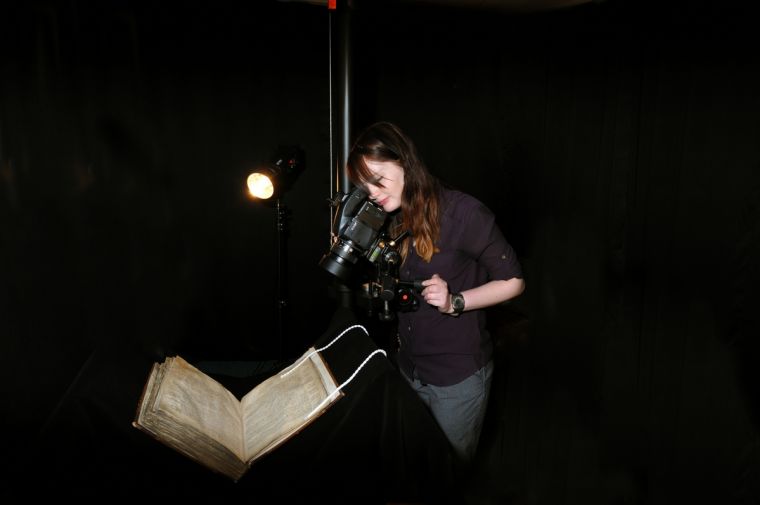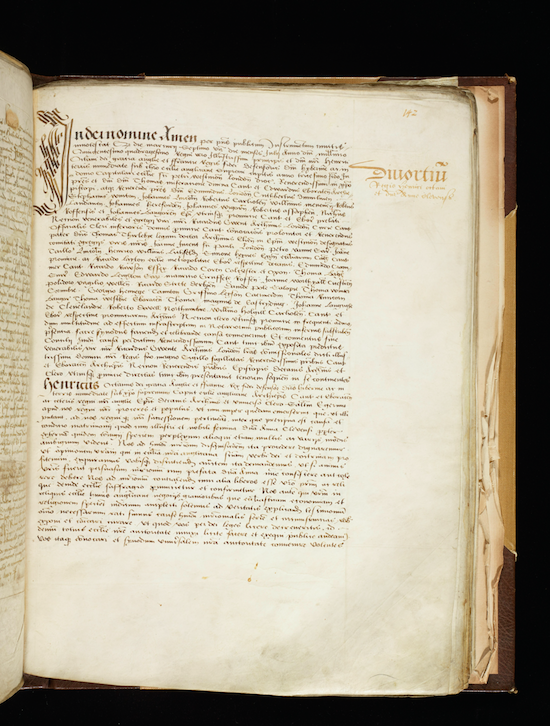Ancient documents reveal the 'incorrigible' abbot and other pestilences of medieval Christian England

More than 10,000 individual handwritten parchment folios that belonged to the Archbishops of York between 1225 and 1650 have been digitally scanned and put online in the York Registers,
The University of York described it as "one of the most important collections of historical materials to survive in England today."
The 20,000 images include a searchable index of names, subjects, places and organisations. They began 50 years before the equivalent folios for the Archbishops of Canterbury and recorded ecclesiastical, political and cultural history in the north of England through the Black Death, the Wars of the Roses, the Reformation and the English Civil War.
Funded by the Andrew W Mellon Foundation, the digitisation took 15 months, with each register treated by a specialist conservator before, in some cases, ultraviolet imaging was used to reveal text unseen for hundreds of years.
Professor Mark Ormrod, the University's Dean of Arts and Humanities, said: "The launch of the Archbishops' Registers website brings to fruition a major project in the Digital Humanities, its content and method being of truly international importance."
"Bringing together the very best of modern technologies with the highest traditions of academic research, the continuing work on the Archbishops' Registers will ensure free and remote access to the wealth of information and interest contained in these priceless historical documents," he added.
Cases include Thomas de Whalley, Abbot of Selby Abbey, a known troublemaker who was visited by Archbishop Wickwane around the 8th January 1280. Wickwane found that de Whalley "does not preach... does not teach... does not correct faults... never sleeps in the dormitory... does not visit the sick... is rarely out of bed to hear matins.... eats meat with laymen in his manor... ignores the orders of the holy father and his archbishop... has negligent and bad habits and is, overall, incorrigible."
In 1281 de Whalley renounced his orders and went on the run.

Archbishop Zouche issued a warning throughout the diocese in July 1348, when the Black Death was in the south, of "great mortalities, pestilences and infections of the air". The disease entered Yorkshire in 1349 and quickly spread through the diocese. The clergy were on the front line bringing comfort to the dying, hearing final confessions and organising burials.
The registers also cover Henry VIII's divorce from Anne of Cleves. Henry and Anne were married in January 1540, and the statements in the register of the time show that this was not a marriage that Henry was particularly enamoured with. After his first meeting with Anne, the King said: "I see no such thing in her, as haith benn shewed me of her and am ashamed that men haith so praesed her as they have dooun, and I like her nott."
Henry blamed Cromwell for organising the marriage with Anne, and he suffered a fall from grace ending with his execution in July 1540.
In his final letter to Henry, Cromwell sets out all of Henry's objections to the marriage in graphic detail: "I have felt her belly and her brestes, and therby as I can Judge, she shulde be no mayde, which strake me so to the harte whan I felte them that I hadd nother will nor courrage to procede any further in other matters."

Cromwell signs his letter: "with the hevy hert and trembling hande of your hieghnes most hevye and most miserable Prysoner and pore slave Thomas Crumwell most gracious Prince I crye for mercy mercy mercy".











